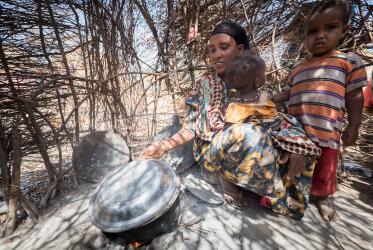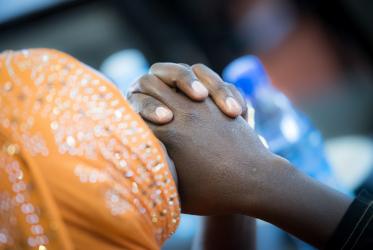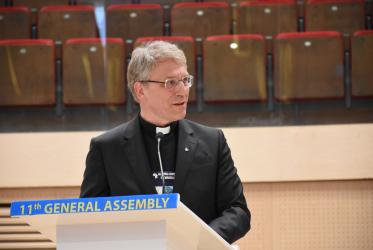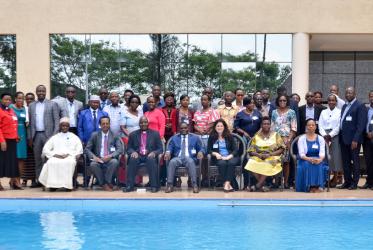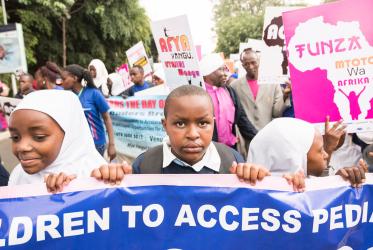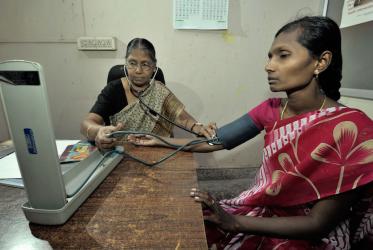Displaying 1 - 20 of 25
Protecting Ethiopia’s church forests
27 October 2021
WCC hones training on attitudes toward HIV treatment
06 December 2018
“Good healthcare a right, not a privilege,” says WCC-EAA
11 October 2017
“It’s time to be brave, to form diverse partnerships”
02 March 2017
Seven weeks of Lent highlight water crisis in Africa
01 March 2017
“Health and healing for all people, that is the challenge”
28 February 2017
